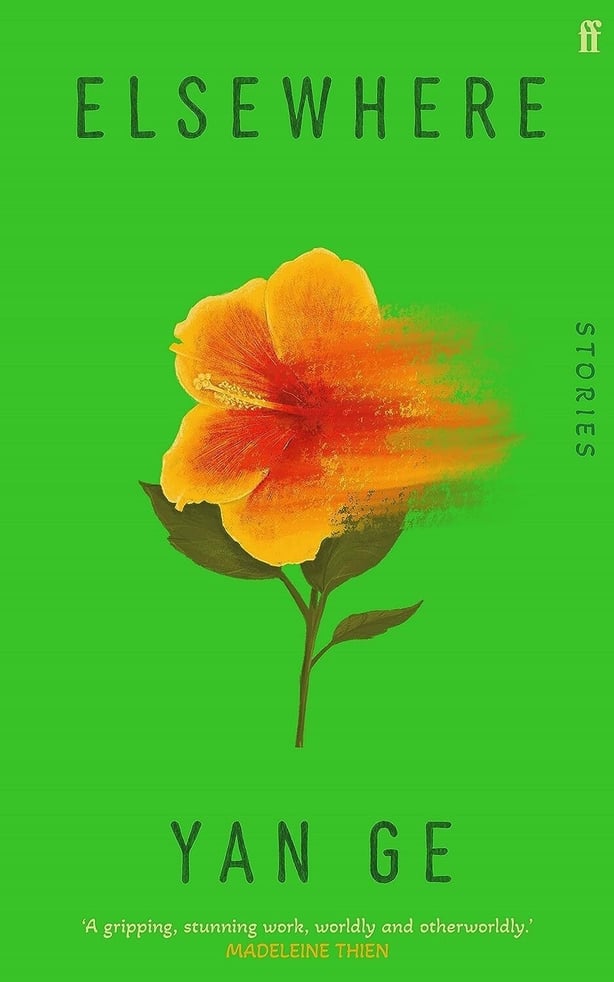The short story form is by its nature made to focus on those on the fringes of society, or so says Frank O'Connor.
And it’s this affinity with the periphery that is brought to life in Yan Ge’s short story collection Elsewhere.
Moving between the contemporary and the historical, the frighteningly dystopian to the hyper-real, Yan Ge’s English-language debut is a mastery of the short story form. A prolific writer in her native China, Ge has won the prestigious Mao Dun Literature Prize and was named by People’s Literature magazine as one of 20 future literature masters in China.
I have been a fan of Ge’s writing since reading How I Fell in Love with the Well-Documented Life of Alex Whelan a story of death and obsession published in Being Various: New Irish Short Stories in 2019. And Elsewhere more than lived up to my expectations.
We need your consent to load this rte-player contentWe use rte-player to manage extra content that can set cookies on your device and collect data about your activity. Please review their details and accept them to load the content.Manage Preferences
Listen: Yang Ge talks to RTÉ Arena
Every story in Elsewhere is a vignette into another world, from Dublin to Stockholm to London. But each, to me, is concerned with the fleeting sense of being at a remove from each character’s needs and desires, always one step away from happiness.
In Shooting an Elephant, a woman named Shanshan moves to Ireland with her boyfriend, who promises the world (or at least Dublin) but gives so little. He’s reporting on a court case of an ex-IRA commander, which swallows up all his time and attention. She lives in their damp cottage, wondering when life will start all the while she’s haunted about a miscarriage on their honeymoon.
In Stockholm, a new mother travels for a literary event, only for her breasts to leak milk at the after parties. Acquaintances try to set her up with opportunities for an affair. The men repulse her. A conversation struck with another woman brings the most crystalline analysis of Elsewhere:
The more marginalised we are from the centre the less we are allowed to talk, write and think as ourselves… You're always seen, by others and by yourself, as a woman, a foreigner, an outsider, therefore the subordinate, the inferior and the inauthentic.
Ge’s stories tackle exactly this, bringing the focus to those usually on the periphery, with such glittering success.

Elsewhere is published by Faber


